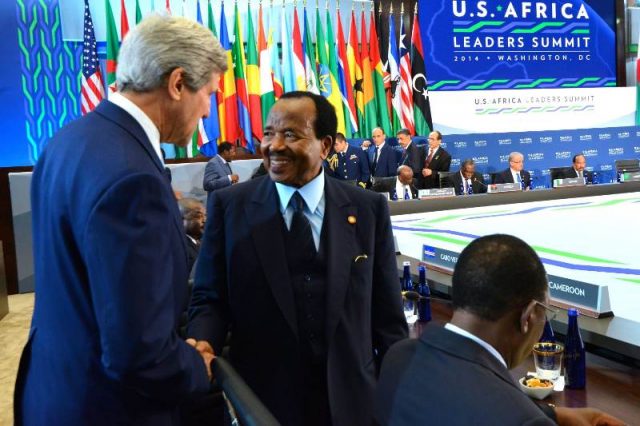The Anglophone crisis has registered among the world’s ‘most neglected,’ according to assessments by the Norwegian Refugee Council
WED 06 JAN, 2021-theGBJournal- Over the last several years, since at least 2016, an inconceivably violent conflict has ravaged the Central African nation of Cameroon. The daily barrage of bloody images posted to social media and the accounts of cruelty and likely war crimes have – at least to date – not been enough to galvanize meaningful or concerted action to resolve what has become known as the Anglophone Crisis. After years of wreckage, there is now a domestic stalemate, a paralyzed status quo that has served to radicalize hardliners on both sides of the conflict.
The roots of the Anglophone crisis date back much farther than 2016, of course. Like many long-simmering issues in the region, hostilities can be traced to the manoeuvring of former colonial powers who spliced up African territories with little regard for the dignity or preferences of local populations. This fact, however, does not excuse the failed leadership that has more recently been the norm – embodied most profoundly by President Paul Biya, who has been in power since 1982, longer than most Cameroonians have been alive.
In October 2018, Biya secured yet another term in office during an electoral exercise that was marred by credible allegations of vote rigging and a clampdown on political adversaries, including opposition leader Maurice Kamto, who had remained under house arrest until last month.
The Anglophone crisis has registered among the world’s ‘most neglected,’ according to assessments by the Norwegian Refugee Council. And according to the International Crisis Group, the fighting has killed well over 3,000 people and displaced an additional 600,000 more. In Anglophone regions, an estimated 850,000 children are currently out of school – likely much higher today in light of the covid-19 pandemic – and one in three of the region’s four million people are in need of humanitarian aid. Cameroon, once a reputed host for refugees is now a major exporter of people who are fleeing violence and government persecution. The number of Cameroonians seeking refuge in neighboring Nigeria, for example, has crossed the 300,000 mark. The instability inside Cameroon has thus produced negative ripple effects on an entire region, including disastrous economic and commercial blowback.
These statistics, as staggering as they are, barely do justice to the overall magnitude of a conflict that has exacted a huge toll on the lives of ordinary Cameroonians – mainly women and children – who have literally been caught in the crossfire between government forces and Anglophone fighters. In the words of local journalist Comfort Mussa, “hardly a day goes by without news of deaths, abductions, arson attacks and other forms of violence that have become a reality for people in [Anglophone] regions.”
As 2021 gets underway, however, there is a small glimmer of hope that momentum has built behind a reform agenda. Rather symbolically, on New Year’s Day, the United States Senate passed a resolution by unanimous bipartisan consent – no small feat in Washington these days – that sent a strong signal to the Biya government and armed groups alike to end the violence and to commit to an inclusive process of international arbitration. The resolution also raised the prospect of punitive sanctions on those individuals responsible for participating in atrocities. (This author has long called for these actions by the U.S. government, a significant donor to and enduring security partner of the Biya government).
As a longtime partner of human rights defenders and pro-democracy leaders in Cameroon, we at Vanguard Africa heartily welcome this development in the halls of the U.S. Senate. We will also advocate that the incoming Biden-Harris Administration make this resolution – and the key principles upon which it is premised – a key priority of its US-Africa policy moving forward.
Put simply, it is time for both sides of the Anglophone crisis to come to terms with the fact that there is no military solution. The guns need to be silenced. The chaos can no longer continue. Importantly, there is some recognition, even among the most militant Anglophone leaders, that this is the only feasible way forward. What is needed today is a negotiated settlement that holds human rights violators accountable and paves the way for a new era of leadership that many Cameroonians are demanding.
The violence perpetrated during the Anglophone crisis, and the lack of respect for the sanctity of human life, has taken a massive toll on future generations of Cameroonians. To relieve citizens from this tailspin, both the government and Anglophone leaders need to take a hard look at this freefall and their respective roles in perpetuating it. A genuinely inclusive dialogue must begin, and the U.S. Government – now vitalized by a rare act of bipartisanship – should help to fill Cameroon’s leadership void that has been so readily exploited.
Jeffrey Smith is the Founding Director of Vanguard Africa.
Twitter-@theGBJournal|email: info@govandbusinessjournal.com.ng










